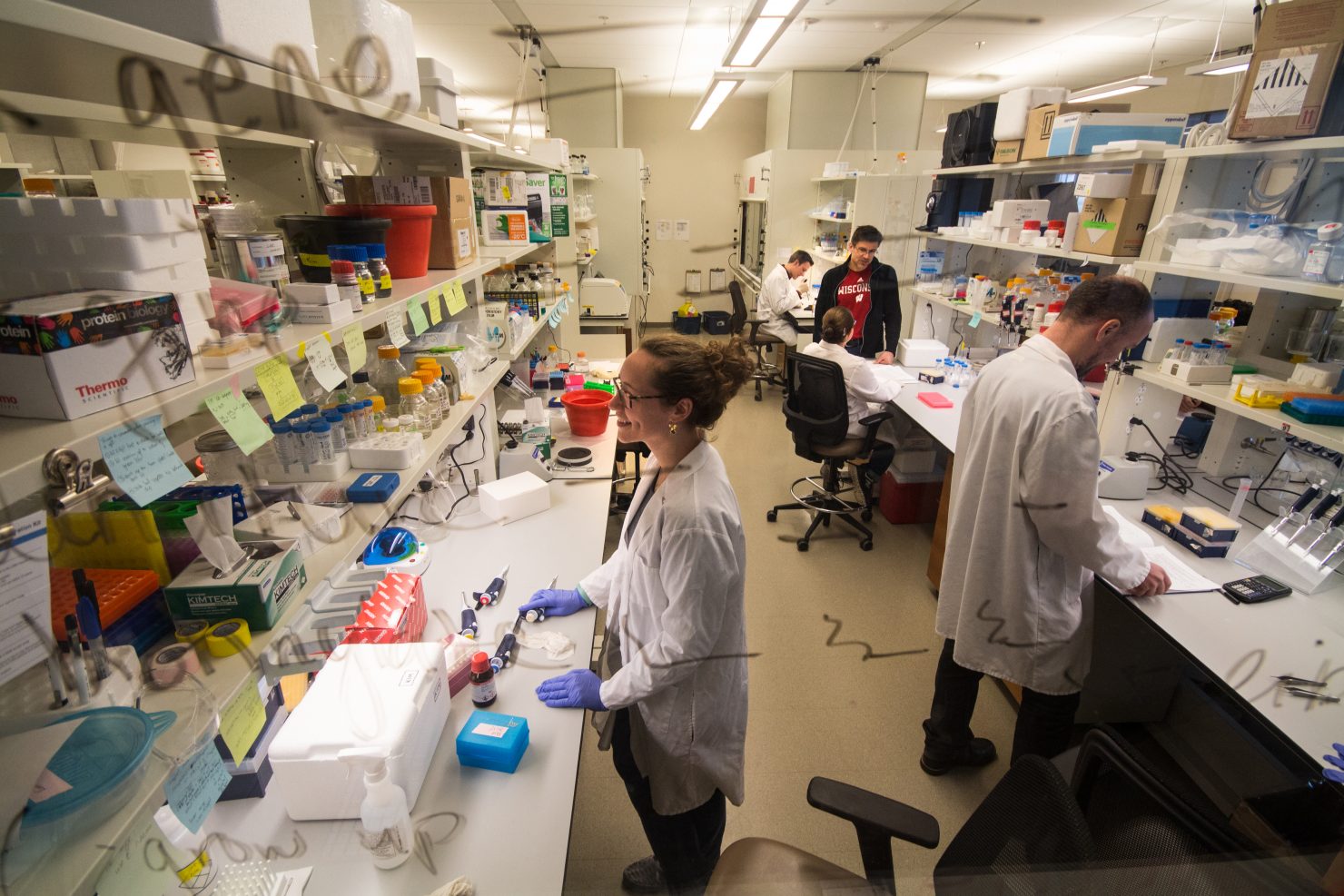Job opportunities and internships are available in individual labs. Some of these opportunities are listed below. Please contact the lab directly if you are interested in a position or internship.
Lewis Lab: Postdoctoral opportunities are available to investigate chromatin dynamics in animal development and cancer models.
Bresnick Lab: One or two postdoctoral positions are available to discover novel mechanisms governing stem and progenitor cell transitions that give rise to the hematopoietic system in normal and malignant contexts.
Rui Lab: The non-canonical JAK signaling pathway (targeting the histone H3 for tyrosine 41 phosphorylation) related to cancer, genome-wide gene expression and transcription studies.
Kalejta Lab: Postdoctoral position open to study the epigenetic regulation of viral chromatin.
Gould Lab: 1- Epigentics/Chromatin looping of breast cancer risk loci. 2-Drug development for prevention/treatment of breast cancer based on novel breast cancer non-coding risk loci.
Attie Lab: We are carrying out a screen in a diverse mouse outbred stock where we genetically map phenotypes related to metabolic disease, together with epigenetic marks and the transcriptome.
Roy Lab: Postdoc positions are available in the area of computational systems biology and regulatory genomics to develop computational methods of constructing genome-scale regulatory networks.
Xu Lab: The candidate should have expertise in chromatin biology and cancer. The project will involve taking genomic approaches to dissect epigenetic mechanisms in breast cancer using cell and animal models.
Sridharan Lab: Candidates should have a strong background in molecular biology and biochemistry or genomics; https://jobs.wisc.edu/research (Research Intern): https://jobcenter.wisc.edu/jobs/detail/46025 (Project Assistant).
Denu Lab: We are interested in recruiting Post-docs that will investigate the link between metabolism and epigenetic mechanisms.
Jarrard Lab: Recruiting a postdoc interested in pursuing the epigenetic regulation of cancer progression and interactions with environment. Translational linkage to human disease emphasized.
